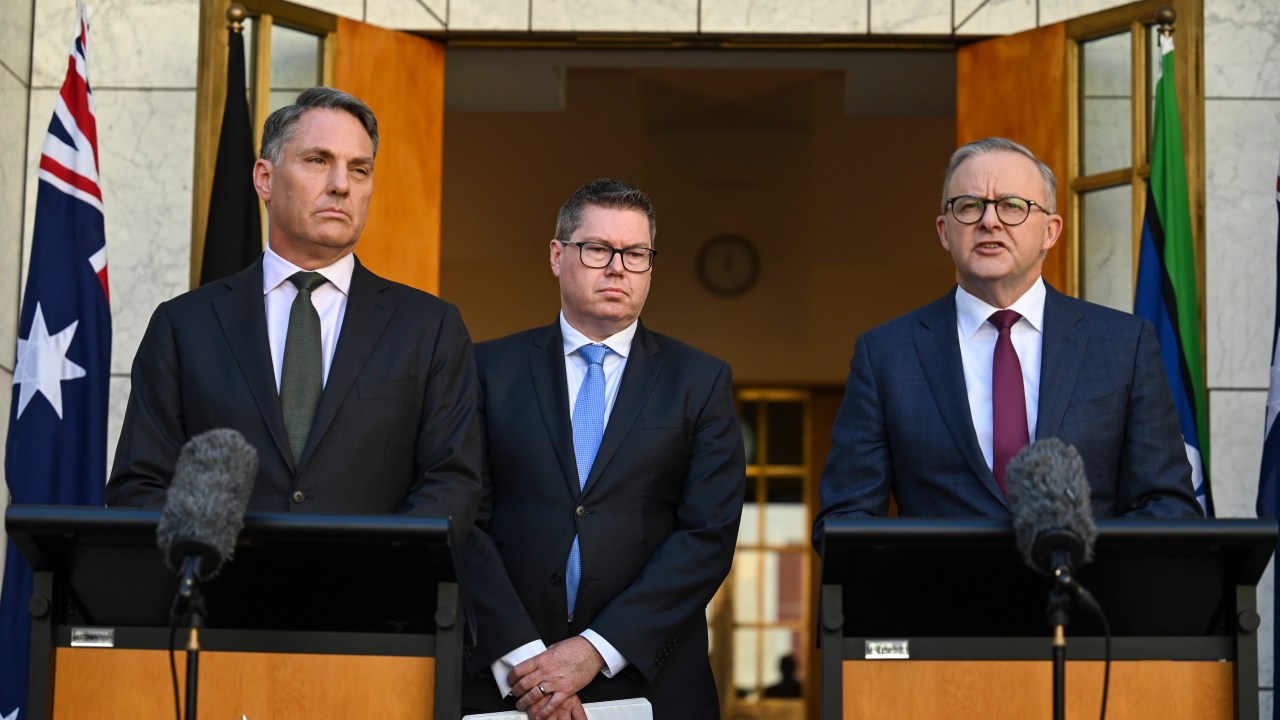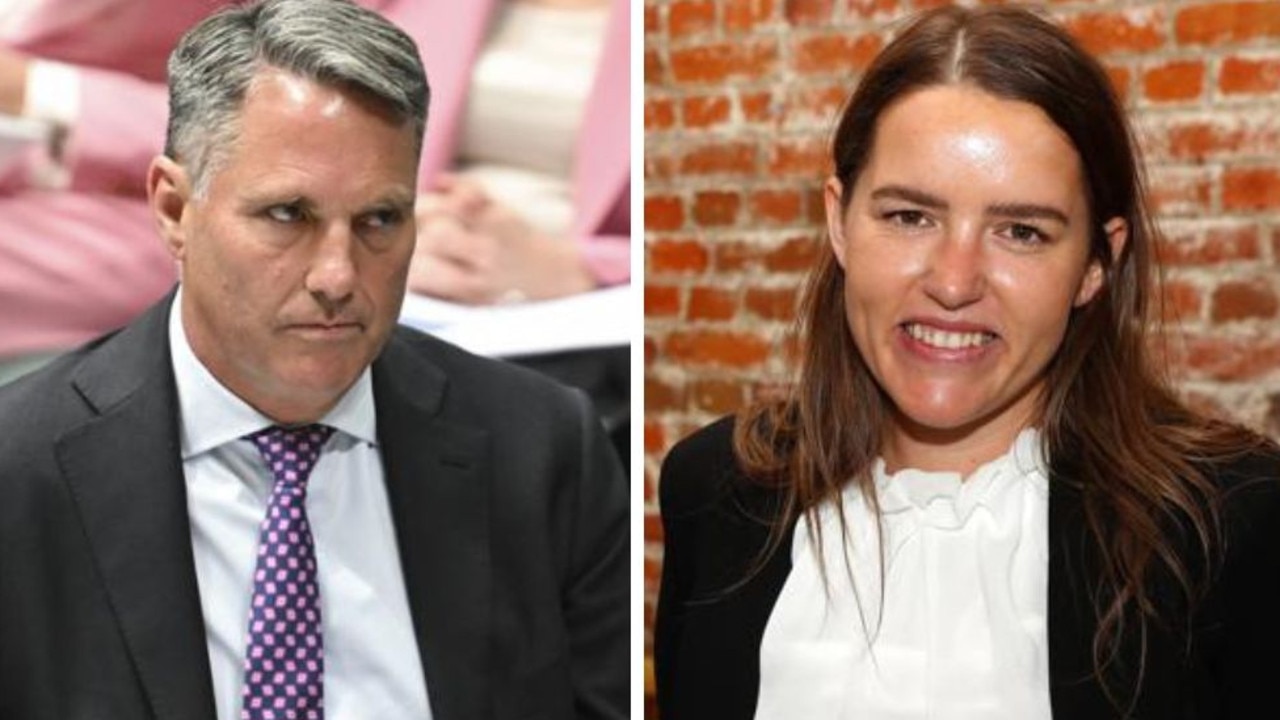Richard Marles, Australia’s Deputy Prime Minister, occupies a pivotal role in the nation’s political landscape. This examination delves into his career trajectory within the Australian Labor Party, highlighting his key appointments and policy contributions. We will explore his significant responsibilities as Deputy Prime Minister, analyzing his actions, challenges, and collaborations with the Prime Minister. Furthermore, we will dissect his foreign policy approach, comparing it to predecessors and examining his strategies for managing crucial international relationships, particularly with China.
Finally, we will assess public perception and media coverage of Mr. Marles, tracing the evolution of his public image and analyzing how different media outlets have shaped his narrative.
This comprehensive overview aims to provide a balanced and insightful understanding of Richard Marles’ political career, his policy positions, and his impact on Australian politics.
Marles’ Role as Deputy Prime Minister
Richard Marles’ position as Deputy Prime Minister of Australia is a significant one, carrying substantial responsibilities within the government’s structure. He serves as a key advisor to the Prime Minister and acts as a stand-in should the Prime Minister be unavailable. His role extends beyond mere support, encompassing active participation in policy development and execution.The Deputy Prime Minister in the Australian government holds a multifaceted role.
They are a member of the Cabinet, contributing to major policy decisions and representing the government in both domestic and international contexts. The Deputy Prime Minister often leads specific portfolios or departments, further expanding their influence and responsibilities. Critically, they act as a crucial link between the Prime Minister and other ministers, fostering collaboration and ensuring smooth government operation.
The precise responsibilities can vary depending on the Prime Minister’s delegation and the Deputy Prime Minister’s own expertise and experience.
Marles’ Actions and Decisions as Deputy Prime Minister
Richard Marles has undertaken several significant actions and decisions since assuming the role of Deputy Prime Minister. For example, he has played a key role in shaping the government’s approach to the Indo-Pacific region, leveraging his extensive experience in foreign affairs. He has led numerous high-profile delegations overseas, strengthening Australia’s relationships with key regional partners. His involvement in the development and implementation of specific defense and security policies has been prominent.
Specific examples could include his public pronouncements on Australia’s security alliances and his participation in crucial international summits.
Deputy Prime Minister Richard Marles’ recent focus on economic stability is particularly relevant given the current business climate. The recent announcement of mosaic brands voluntary administration highlights the challenges facing Australian businesses, a matter that undoubtedly factors into the government’s economic planning under Richard Marles’ leadership. Understanding these complexities is crucial for informed policy decisions.
Challenges Faced by Marles as Deputy Prime Minister
The position of Deputy Prime Minister presents numerous challenges. Maintaining a cohesive relationship with the Prime Minister while also effectively managing his own portfolio and responsibilities requires considerable political skill and diplomatic finesse. Balancing the competing demands of different stakeholders and navigating internal government dynamics are ongoing tasks. Furthermore, the Deputy Prime Minister often faces the challenge of representing the government’s position on complex and potentially controversial issues, requiring a delicate approach to public communication and political strategy.
The ever-changing geopolitical landscape also adds a layer of complexity to his responsibilities.
Marles’ Interactions and Collaborations with the Prime Minister
The relationship between the Prime Minister and the Deputy Prime Minister is crucial for effective governance. The level of collaboration and the nature of their interactions shape the government’s overall effectiveness. While specific details of their private discussions remain confidential, public appearances and joint statements offer insights into their working relationship. The frequency of their joint press conferences and their collaborative presence at significant events indicate a close working partnership.
Effective communication and mutual respect appear to underpin their collaborative efforts.
Significant Policy Initiatives Spearheaded by Marles as Deputy Prime Minister
As Deputy Prime Minister, Richard Marles has been instrumental in several key policy initiatives. A comprehensive list would require detailed examination of government records, but notable areas of focus have included strengthening Australia’s defense capabilities, enhancing regional partnerships in the Indo-Pacific, and fostering closer collaboration with key allies. These initiatives often involve significant budgetary allocations and require extensive inter-departmental coordination, reflecting the broad scope of his influence.
Marles’ Stance on Foreign Policy: Richard Marles
Richard Marles’ approach to Australian foreign policy is characterized by a strong emphasis on strengthening alliances, navigating the complexities of the Indo-Pacific region, and fostering a more robust and independent foreign policy posture for Australia. He advocates for a strategic approach that balances engagement with a range of partners, including the United States, China, and regional Southeast Asian nations, while prioritising Australia’s national interests.
Deputy Prime Minister Richard Marles’ recent economic pronouncements have highlighted the challenges facing Australian businesses. Understanding the complexities of these issues requires considering cases like the recent mosaic brands voluntary administration , which underscores the need for robust economic strategies. The government’s response to such events will undoubtedly shape Richard Marles’ future policy decisions.
This approach represents a shift, albeit a nuanced one, from previous administrations.Marles’ foreign policy views, while sharing some common ground with predecessors, exhibit key differences. Like many previous foreign ministers, he acknowledges the importance of the US alliance. However, unlike some previous administrations which may have placed a greater emphasis on solely the US alliance, Marles stresses the need for a multi-faceted approach, actively engaging with a broader spectrum of regional and global partners to achieve Australia’s strategic goals.
This includes a more assertive engagement with Southeast Asia and a more nuanced approach to the relationship with China. Compared to some more overtly hawkish approaches of the past, Marles’ approach emphasizes diplomacy and strategic engagement, even amidst heightened geopolitical tensions.
Managing Relationships with Key Regional Partners
Marles’ strategy for managing relationships with key regional partners prioritizes strengthening existing alliances while cultivating new partnerships. He actively seeks to enhance cooperation on areas of mutual interest such as security, trade, and climate change. This approach is evident in his increased engagement with ASEAN countries, emphasizing the importance of regional stability and cooperation through organizations like the East Asia Summit and the ASEAN Regional Forum.
His focus on building stronger relationships with India and Japan reflects a broader strategy of strengthening partnerships within the Indo-Pacific to counterbalance the growing influence of other regional powers. He aims to create a network of mutually beneficial relationships rather than relying on a single dominant partnership.
Australia’s Relationship with China
Marles has publicly stated the need for Australia to manage its relationship with China in a way that balances the need for economic engagement with the imperative to protect Australia’s national interests and security. He has emphasized the importance of open communication and dialogue while also maintaining a firm stance on issues such as human rights and regional security.
For example, he has been vocal about concerns regarding China’s activities in the South China Sea and its treatment of the Uyghur population. However, he has also stressed the importance of maintaining economic ties with China, recognizing the significant trade relationship between the two countries. This approach reflects a careful balancing act – acknowledging the importance of China’s economic role while simultaneously addressing concerns about its actions.
Key Tenets of Marles’ Foreign Policy
The following points represent key tenets underpinning Richard Marles’ approach to Australian foreign policy:
- Strengthening the US alliance as the cornerstone of Australia’s security architecture.
- Deepening engagement with regional partners in Southeast Asia, India, and Japan.
- Promoting a rules-based international order and upholding international law.
- Maintaining a balanced approach to the relationship with China, emphasizing both engagement and the protection of Australia’s national interests.
- Prioritizing climate change as a significant security and economic challenge requiring international cooperation.
- Investing in defense capabilities to ensure Australia’s security and strategic autonomy.
Public Perception and Media Coverage of Richard Marles
Public perception of Richard Marles has been shaped by a complex interplay of media coverage, political events, and his own public pronouncements. Analysis reveals recurring themes, both positive and negative, influencing how the Australian public views him. The impact of social media, particularly during periods of intense political debate, has also played a significant role in shaping his image.
Recurring Themes in Media Coverage
Media coverage of Richard Marles frequently centers on his role in foreign policy, particularly Australia’s relationship with China and the United States. His pronouncements on defense spending and national security are also frequently highlighted. Another recurring theme involves his performance as Deputy Prime Minister and his effectiveness within the government. Coverage often focuses on his public speaking style, his ability to articulate complex policy issues, and his perceived effectiveness in communicating the government’s message.
Examples of Positive and Negative Media Portrayals, Richard marles
Positive portrayals often emphasize Marles’ expertise in foreign policy and national security, citing his experience and considered approach to complex international relations. News articles praising his measured responses to geopolitical challenges, showcasing his diplomatic skills and strategic thinking, are common. Conversely, negative portrayals sometimes criticize his policy positions as being too cautious or lacking decisiveness. For example, media outlets might highlight instances where his public statements have been seen as contradictory or where he has faced criticism for his handling of specific policy challenges.
The Impact of Social Media on Public Perception
Social media platforms have amplified both positive and negative narratives surrounding Richard Marles. Supporters often share positive news articles and praise his policy positions on platforms like Twitter and Facebook, creating a positive online echo chamber. Conversely, critical viewpoints, often expressed more passionately, can quickly spread through social media, potentially shaping public perception negatively, especially among those who primarily consume news through these channels.
The speed and reach of social media allow for rapid dissemination of information, both factual and opinion-based, significantly impacting public opinion.
Framing of Political Actions by Different Media Outlets
Different media outlets frame Richard Marles’ actions through varying ideological lenses. Left-leaning publications tend to portray him in a more positive light, emphasizing his progressive policies and diplomatic approach. Right-leaning outlets, on the other hand, might focus on criticisms of his policies, potentially highlighting perceived weaknesses or inconsistencies. This demonstrates how media bias can influence public perception, leading to divergent interpretations of his political actions.
For instance, his stance on climate change might be framed positively by environmentally conscious media, while more skeptical outlets might emphasize potential economic impacts.
Evolution of Public Image Over Time
Richard Marles’ public image has evolved since entering Parliament. Initially, he might have been perceived as a relatively unknown figure, but his increasing prominence in the Labor party, particularly through his portfolio responsibilities, has increased public awareness. His performance during major political events, debates, and interviews has contributed to shaping public opinion. Successful policy initiatives or strong public appearances enhance his image, while controversies or perceived missteps can negatively impact public perception.
This ongoing process of shaping and reshaping public image is a constant feature of political life.
In conclusion, Richard Marles’ career reveals a complex and evolving political figure. His journey from within the Australian Labor Party to the Deputy Prime Ministership showcases a steady ascent marked by significant policy contributions and engagement in crucial national and international debates. Understanding his policy positions on defense, economics, and social issues, alongside his approach to foreign policy, provides valuable insight into the current Australian political climate and its future trajectory.
The ongoing public perception and media coverage of Mr. Marles will undoubtedly continue to shape his political legacy.
Quick FAQs
What is Richard Marles’ educational background?
Information regarding Richard Marles’ formal education would need to be sourced from biographical information not provided in the Artikel.
What are some criticisms leveled against Richard Marles?
A detailed analysis of criticisms against Richard Marles requires access to news articles, political commentary, and other sources not included in the provided Artikel.
What is Richard Marles’ family life like?
Details about Richard Marles’ personal life are not included in this Artikel and would need to be researched separately.



